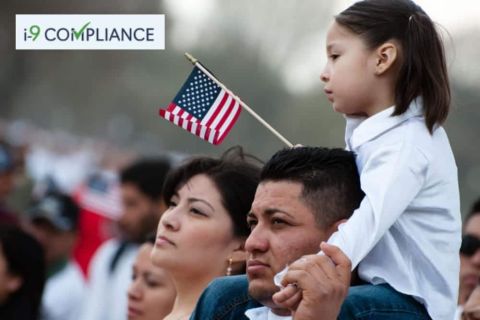Comment Period for USCIS “Public Charge” Rule Ends

U.S. Citizenship and Immigration Services (USCIS) has received many comments from immigration advocates and medical groups suggesting changes to its proposed “Public Charge Ground of Inadmissibility” rule, published in the Federal Register. These comments ask the agency to exclude public benefits from analyzing whether immigrants would most likely be dependent on the government for subsistence.
The agency’s proposal, which was announced on February 17th, seeks to reduce the strict standards put in place under the previous administration for admissibility as well as applying for lawful permanent residence. Under these previous standards, the definition of public charge included those receiving food, housing, and health benefits for greater than 12 months in a span of three years. Immigration advocates criticized these changes for potentially causing non-citizens to decline to access these benefits for fear that it would negatively impact their immigration status.
According to the Secretary of the Department of Homeland Security (DHS), Alejandro Mayorkas, “Under this proposed rule, we will return to the historical understanding of the term ‘public charge’ and individuals will not be penalized for choosing to access the health benefits and other supplemental government services available to them.” These proposed changes largely return public charges’ interpretation to the standards that preceded the changes made under the previous administration by excluding non-cash benefits, including the Supplemental Nutrition Assistance Program, housing benefits, transportation benefits, and most forms of Medicaid benefits. It would also define those as likely to become a public charge as those who are “likely to become primarily dependent on the government for subsistence,” which would be determined under the totality of the circumstances.
The American Medical Association was among those who commented on the proposed rule and commended the DHS for some of the changes which removed regulations that “have cast a chilling effect on these individuals and families seeking access to public benefits at a time when our nation is struggling to overcome a global pandemic, undermining general population health.” However, the organization argued that a provision that would allow the use of Medicaid in a public charge determination if it is used for long-term institutionalization be removed.
Critics of the DHS’s proposed changes have argued against reducing the stringent standards under the previous administration at all due to the difficulty it could create in enforcing the intent of the public charge rule of preventing immigration, which would create a financial burden for the government. As of now, the DHS will review comments and make a decision on whether or not to make additional changes.
Laws and regulations are constantly shifting, and the Form I-9, Employment Eligibility Verification, is no exception. It can be difficult for employers to keep up with the changes and avoid the fees and penalties associated with noncompliance. However, one of the best ways to help is by investing in an electronic I-9 management system. This can guide HR personnel through the process and ensure that forms and documentation are stored correctly.
Increase your hiring and verification efficiency today with I-9 Compliance automation.